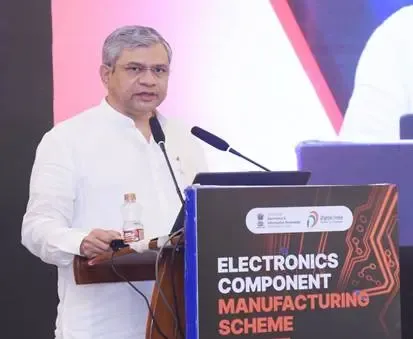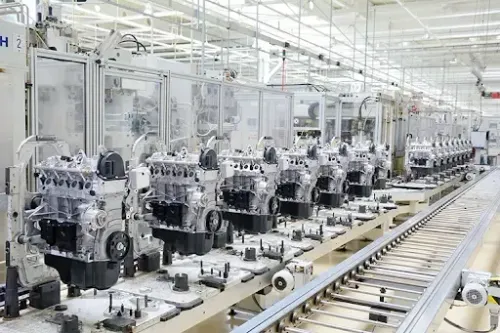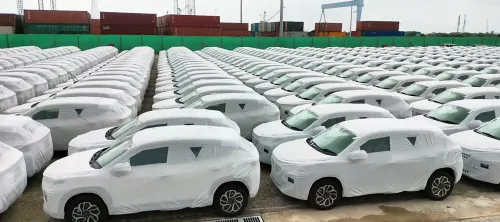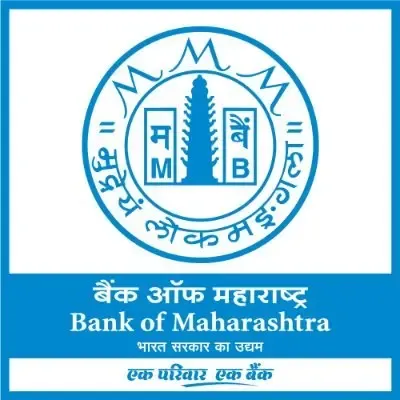Have 350 AI datasets been uploaded on AI Kosh and 4 AI tools developed by IITs?

Synopsis
Key Takeaways
- 350 AI datasets uploaded on AI Kosh.
- Four new AI tools from IITs will be launched soon.
- Electronics production has surged five-fold.
- Exports have increased by more than six-fold.
- Focus on quality and innovation is critical.
New Delhi, April 27 (NationPress) Over 350 AI datasets have been uploaded onto AI Kosh, a platform designed to offer a repository of datasets, models, and use cases aimed at fostering AI innovation. Additionally, four AI tools developed by IITs are set to be launched soon, as reported by the government.
Union Minister for Electronics and IT, Ashwini Vaishnaw, highlighted India's advancements in AI and data-driven solutions, mentioning that techno-legal solutions are also in development to enhance the electronics ecosystem.
Vaishnaw stated, "India began its journey by manufacturing finished products, building volume and basic confidence, leading to downward integration. This was succeeded by module-level production, component manufacturing, and now the creation of materials essential for components." During an event, he noted that finished goods represent 80 to 85 percent of the value chain, emphasizing the remarkable scale achieved in electronics manufacturing.
He revealed that electronics production has surged five-fold, while exports have increased more than six-fold, with an export CAGR surpassing 20 percent and production CAGR exceeding 17 percent.
Mobile phones, servers, laptops, and IT hardware are witnessing significant advancements, positioning the industry for substantial growth.
Vaishnaw described the Electronics Component Manufacturing Scheme (ECMS) as a horizontal initiative supporting not only electronics but also sectors like industrial, power, and automotive. He emphasized the establishment of a comprehensive ecosystem for electronics manufacturing across the nation.
He stressed the importance of innovation and quality, noting that many companies have set up design teams and that it is critical for every participant to develop such capabilities.
Calling for adherence to Six Sigma standards across the sector, he warned that those failing to meet quality benchmarks would be sidelined. He believes that focusing on design capability and quality excellence will lead India to dominate in electronics.
Vaishnaw shared that ECMS has a robust pipeline of projects awaiting approval and expressed confidence that this is merely the beginning of India's swift transformation into a global electronics hub.
This scheme is not limited to incentivizing subassemblies and components; it takes a holistic approach by incorporating the entire supply chain related to these elements.
In addition to promoting the development of components and subassemblies, it also supports capital equipment, ensuring the inclusion of necessary machinery for manufacturing processes. Furthermore, it incentivizes the subassembly of equipment used in production, thereby reinforcing an integrated system that boosts efficiency and production capabilities. By addressing these crucial aspects, the scheme cultivates a strong, interconnected ecosystem, fortifying domestic manufacturing.
The scheme prioritizes the performance of applicants, ensuring that incentives are allocated on a first-come, first-served basis. This framework encourages efficiency, proactive engagement, and timely applications, fostering a competitive yet equitable atmosphere.
India has made remarkable strides in electronics manufacturing, particularly in mobile devices, becoming the world’s second-largest mobile manufacturing hub.










